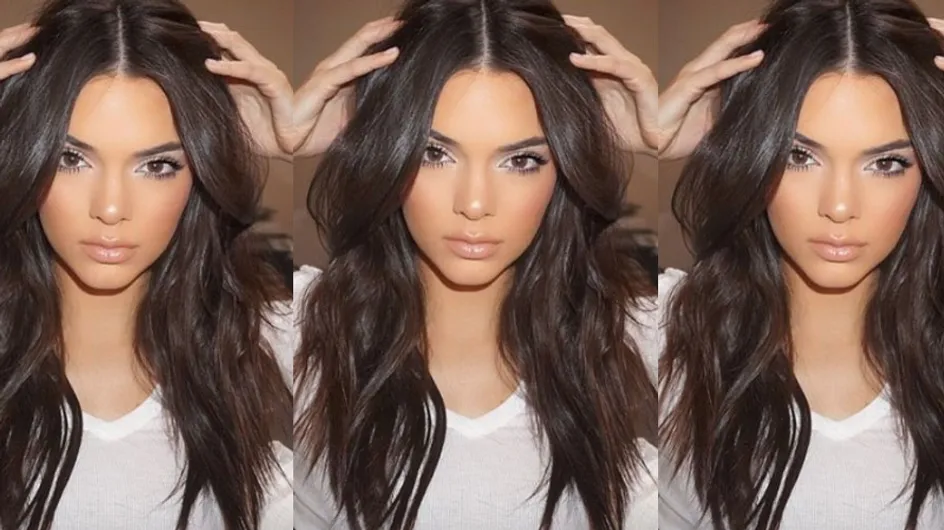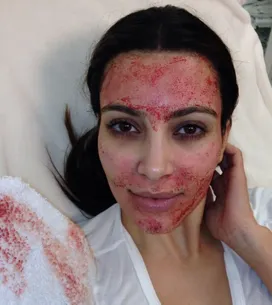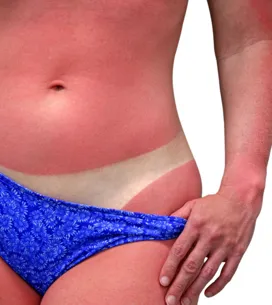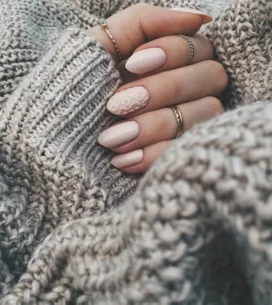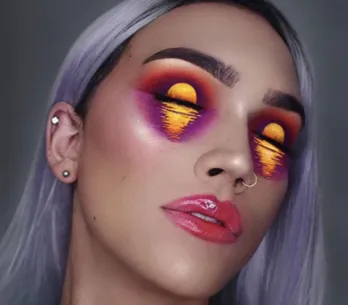When it comes to hair type, no mane is the same. Some of us (usually if you are blessed with thick hair) are lucky enough to get away with just a weekly wash, or some prefer three times a week or every other day. But while some chicks can't bear to go a day without hitting the shampoo bottle, something we can all agree on is that limp, lanky locks are never ideal.
If you've got a naturally oily hair type then chances are, pesky grease is the bane of your life. So if you're struggling to handle those oily roots, then it's time to rejoice (loudly if you wish) cos we've spoken to Ricardo Villa Nova, Resident Tricologist at Urban Retreat at Harrods who has dished the (literal) dirt on caring for oily/greasy hair, answering even the most pressing of queries.
From simply reducing the amount of times you wash your hair, to the best styling tricks for hiding the evidence of an unwashed mane for an extra day or so, these are the only tips and tricks you'll need to transform a greasy barnet into gorgeous tresses.
What are the characteristics of oily hair?
Typically oily hair types can be identified by the presence of a greasy layer on the scalp and surrounding the roots of the hair. Often a greasy or oily hair type is caused by a common imbalance of the sebaceous glands which secrete too much sebum.
To break it down into non science-y lingo, sebum is a natural oily substance which lubricates the scalp and protects the hair and skin against potentially damaging pollution. But as with anything, when there’s too much of it, it becomes a problem.
Ricardo explains: "Greasy scalp can have an impact on the hair texture as well, which very often leaves the hair feeling and looking flat, limp and lifeless." Eek!
What are the causes of oily hair?
While you may have heard plenty of age old rumours about what actually causes greasy hair, including over-styling, over-touching, using the wrong products ect, it's actually down to a simple case of either nature or nurture.
Ricardo says that in some cases, overactive glands on the scalp can cause oil and grease to build up just six hours after a wash, it all varies person to person. But there are also other reasons why you might find yourself with oily hair - for starters, take a look at the hair products you're using.
Are they specifically suited to your hair type? Ricardo says: "There are some oil based hair products that can make the hair look greasy even though the scalp is naturally balanced. Some cosmetic hair care products contain a high concentration of oils and silicones so try and avoid these." Basically if you keep using products which cause the hair to become oily then there's a chance the scalp could become overstimulated and congested.
How often should normal type hair be washed?
If you have a normal hair type that's not coloured, dry, oily or particularly curly for example, then the amount of times you wash it each week is often a matter of personal choice - depending on how quickly your hair starts to look less than clean, and you think it's time to hit the shampoo.
Ricardo says: "Normal hair can be washed daily but if the scalp lacks natural hydrolipidic film, it's not a good idea as washing the hair daily can promote sensitivity."
To be on the safe side, even if you are a gal that isn't quite ready to give up the daily hair wash, try reducing the amount of times you wash your hair to every other day instead to begin with, so your scalp has a chance to regulate its natural oils. It will look way healthier we promise! And remember, a healthy scalp means healthy growth, bringing you one step closer to long, mermaid hair AND more time to catch those precious Zs in the AM. Win win, right?
How often should you wash oily hair?
If you really struggle with extremely oily hair, then it will need to be washed daily. Ricardo suggests using a shampoo made specifically for greasy hair as they are kinder on the scalp. If you have longer hair then a combination shampoo can be a good option. He says: "The build up of grease on the scalp can affect hair growth and long term can cause the hair to thin."
Can touching your hair really make it get greasy?
It's time to put this recurrent beauty rumour can finally be put to rest! Ricardo says: "It's true that the scalp produces grease straight after washing it, but running your fingers though your hair or touching it, will not increase the amount of grease produced, however it will help to spread the grease through the hair more quickly, and add dirt off your hands." So there you have it: hands off!
Is there any thing you can do to reduce the amount of grease in your hair?
You might not realise but washing your hair with extremely hot water can stimulate the grease glands, so it's advisable to wash the hair with water that's nearer to body temperature or even slightly cooler. Also massaging the scalp can stimulate it to produce more oils too - so before you go for that Indian Head Massage, think about your barnet.
Is there anything you absolutely should NOT do if you have naturally oily hair?
Rule number one: If you're using conditioner on your roots, then it's time to stop for good! This should be avoided at ALL costs as the concentration of oils is a lot higher up there, and as the main purpose of conditioner is to moisturise the hair shaft, conditioner is not needed as our scalp does this for us already.
Similarly, Ricardo says using serums or hair oils on or near the roots is a recipe for greasy hair - make sure you stick to the middle and lengths only. Noted!
If you don't have time to wash your hair, what is the best way to style it?
If you have naturally oily hair you're no doubt already a firm fan of dry shampoo products like our best friend Batiste. But for those of you who don't know, these are spray-in powders which absorb the greasy layer on the hair and help revive your barnet for an extra decent day's wear.
However, Ricardo warns: "Dry shampoo, even though it's a great help, should not be used too regularly as it can block the follicles creating a barrier that does not allow the sweat glands to do their job." So if you're going to use it, try not to use it every day. To give your barnet extra body and volume, apply it all over the hair not just close to the roots.
Ricardo's top tip: "Avoid spraying it directly on the roots - ideally hold the can about 20cm away from the roots then brush through thoroughly before styling." If you're feeling brave, a kooky, alternative way to style oily hair is to go with it, and style up with gel or wet-look products to transform your oily locks into a style statement - and a big middle finger to the haters! Who care what they think anyway?
Got any tricks for styling up oily hair or any tips on keeping it at bay? Let us know @sofeminineuk!
You Might Also Like:
Tiger Eye Tie-Dye Is The Latest Hair Trend To Rock Our Tresses
The Year Of The Lob! How To Wear The Long Bob Like A Boss
5 Hair Tips We Can Take From Emma Watson On Going Darker For Winter
